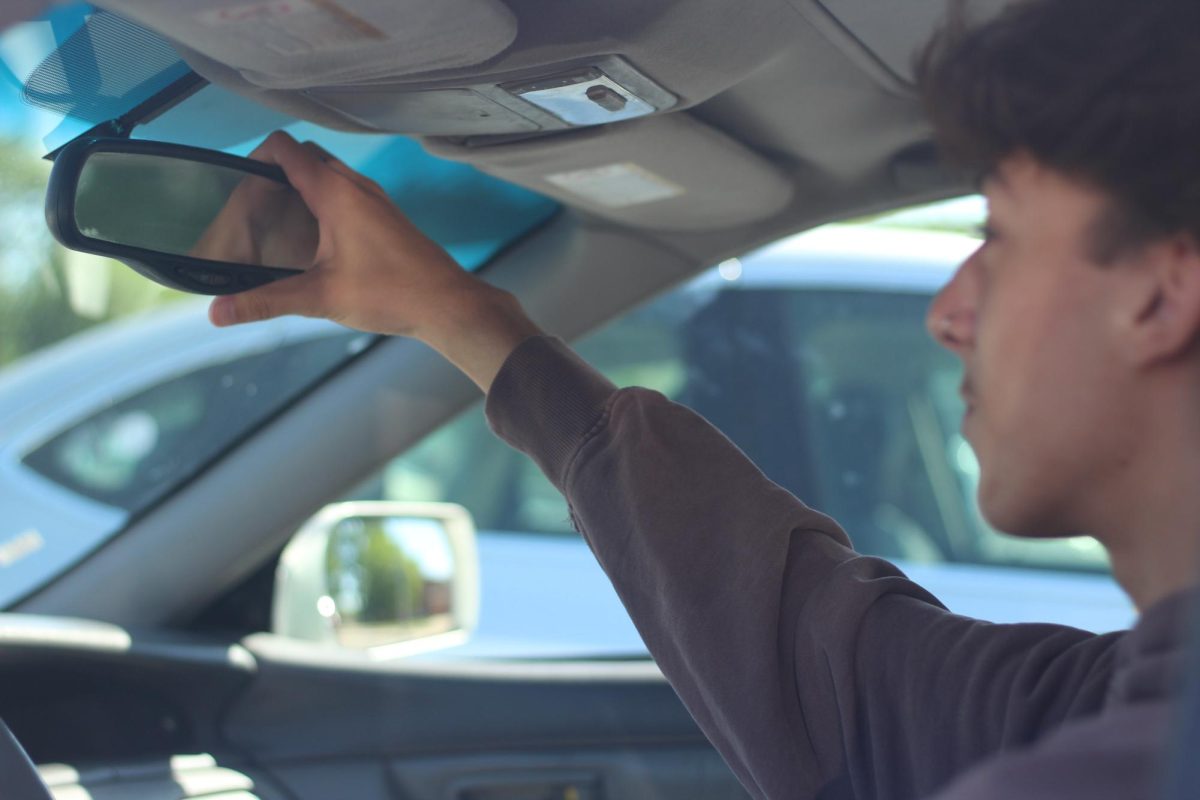Getting cut off, not making the light, the car driving in front going below the speed limit — these are all things that could cause someone to act out aggressively on the road.
Factors such as high stress, being in a rush and the feeling of anonymity can cause someone to act out on the road.
“I would say, right after school, I’m irritable, but normally around rush hour, like 5 to 6 p.m., that’s when I notice a lot of other people are being dangerous on the road,” said senior Canaan Hogan.
Hogan recently had a personal experience on the road with a dangerous driver.
“The other day, I got too close to someone’s car by accident and they continued to brake-check me down the road, trying to make me rear end them,” said Hogan.
Hogan admits to retaliating towards the car by honking and continuing to trail them, causing the driver in front of him to get out of his car and yell at Hogan about riding too close. There is no certainty as to what the road ragers’ intentions were, making it possibly a very dangerous situation for Hogan and drivers in the same type of conflict.
“I could’ve controlled myself better by not honking or engaging at all, but I think that at the moment, it really stressed me out that he kept slamming on the brakes and it was really irritating,” said Hogan.
According to the American Psychological Association, “certain psychological factors, including displaced anger and high life stress, are also linked to road rage.”
When someone is dealing with difficult things in their lives, it can be easier to take it out on random people on the road.
Psychotherapist Barry Markell, who has treated many road rage perpetrators and victims says: “Road ragers don’t see the offender as a person. They ‘thingify’ the person.”
It is a lot easier to yell at someone’s grandma and flip them off if you only see them as a car, but people have to think: would you be yelling at this person if they somehow made you upset in the grocery store? It’s the feeling of anonymity that makes people think they can act however they feel with no consequences.
Science teacher Lynn Bumstead, who is also a driver education instructor, thinks people feel isolated while driving a car.
“There’s a barrier (the car) for your protection so you kind of act differently than you normally would,” said Bumstead.
Another reason why someone might get mad is running late. Drivers who are running late tend to speed, making it seem like the cars going the correct speed limit have become an obstacle for them to get around.
“People are always in a rush,” said Loy Norrix police officer John Maney, who is often patrolling on the roads during the weekend.
Sometimes, you just have to let the person driving dangerously go on their way instead of trying to stand your ground: you never know what someone might have in the car with them and what their intentions might be, so it’s best to play it safe.
Dealing with dangerous drivers can be very frustrating and scary. However, some things can be done to control emotions better such as taking deep breaths, taking a drink of water and thinking about how your driving or reaction might affect others.
Officer Maney thinks road ragers take it too far, letting their emotions pull them down. Maney said, “It’s not that deep, not that deep at all.”









